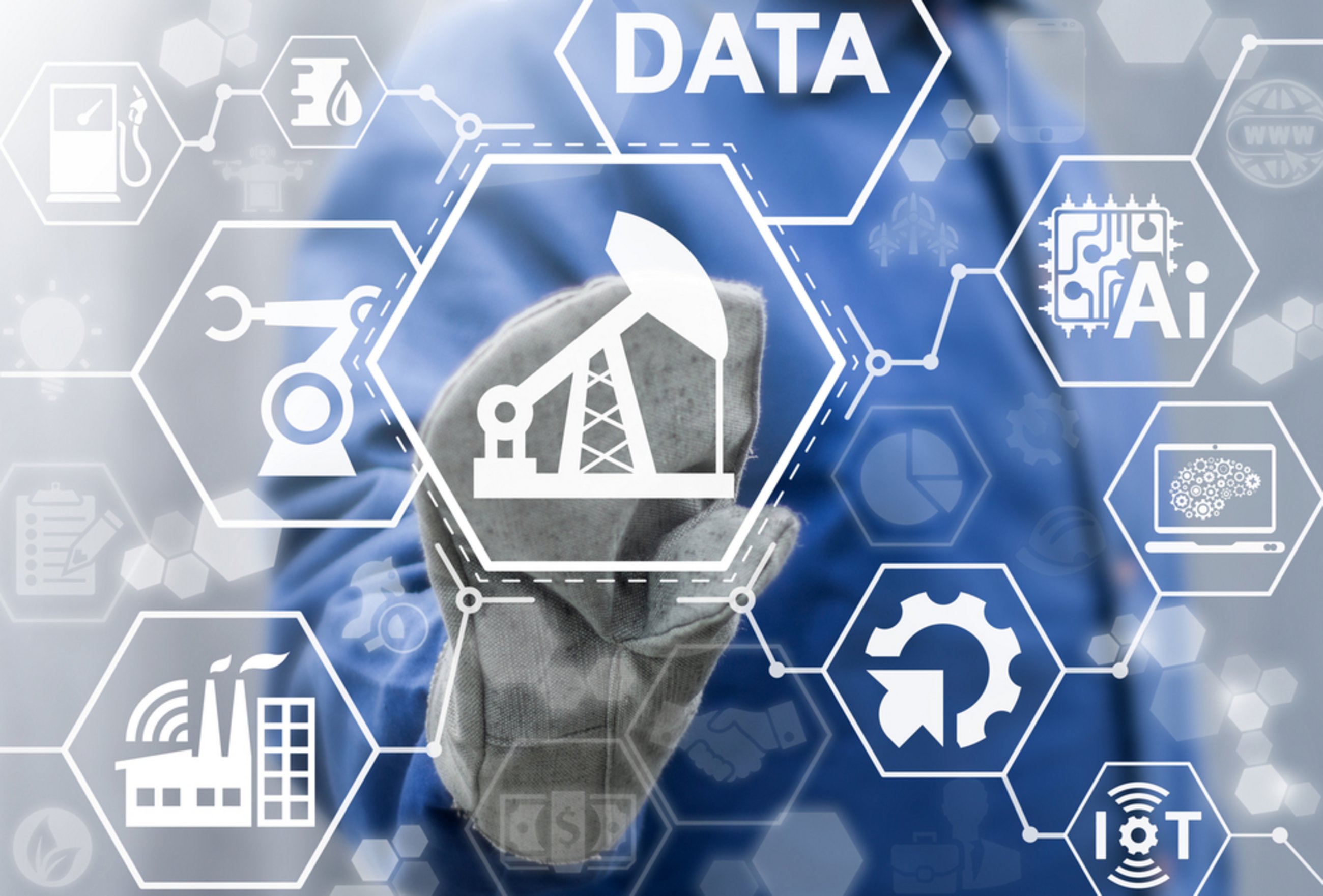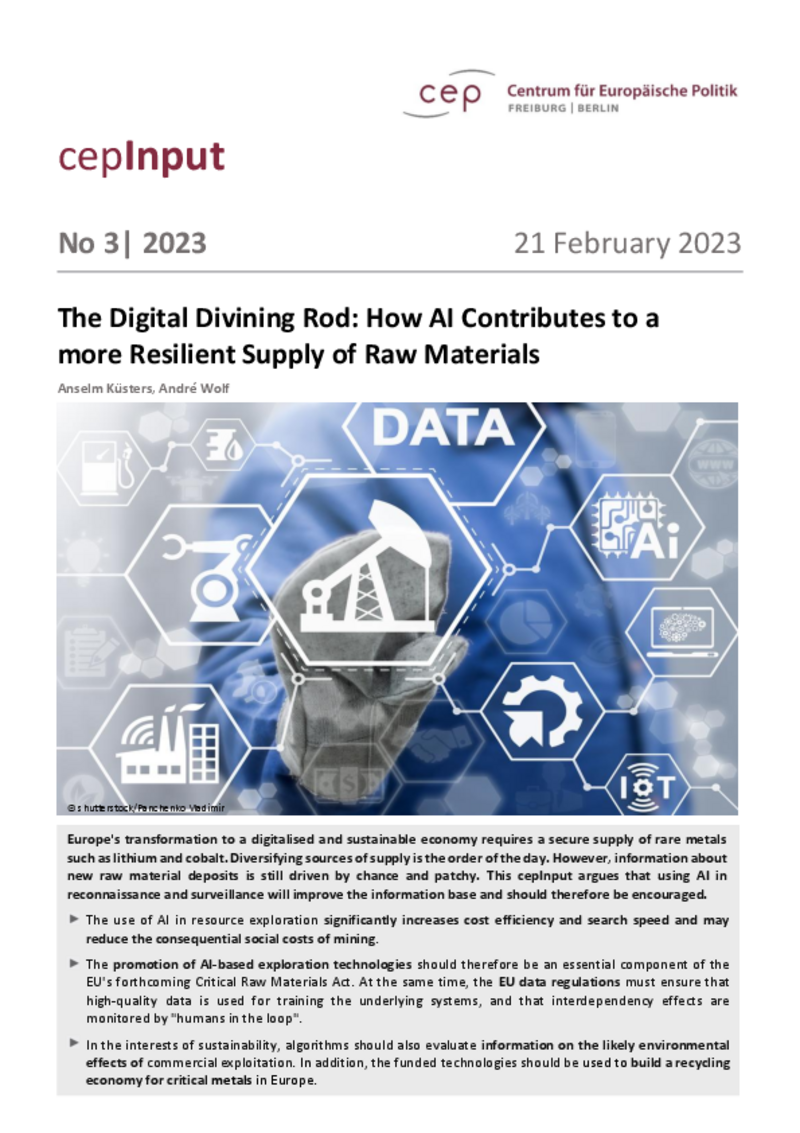
Information Technology
The Digital Divining Rod: How AI Contributes to a More Resilient Supply of Raw Materials (cepInput)
cepInput
"The European Union should massively promote the use of AI for the exploration of new raw material deposits and in the awarding of exploration and mining licences," demands cep digital expert Anselm Küsters, who wrote the study with cep economist André Wolf. However, it must be ensured that the systems are fed with high-quality data and that the final control is carried out by humans, explains Küsters. The use of AI could also help prevent the long-term emergence of non-European monopolies in this segment. The cep researchers address their recommendations to the Commission, which plans to present the so-called Critical Raw Materials Act soon.
According to Wolf, using AI increases cost efficiency and search speed. "The social follow-up costs of mining can be significantly reduced," emphasises the cep expert, who researches new technologies. He says the EU law must include AI-based exploration technologies as an essential building block. It is also important that the algorithms provide information about expected environmental effects. In addition, they should also be made usable in the medium term for developing a recycling economy for critical metals in Europe.
Download PDF
| The Digital Divining Rod: How AI Contributes to a More Resilient Supply of Raw Materials (cepInput) (publ. 02.21.2023) | 523 KB | Download | |
 | |||




